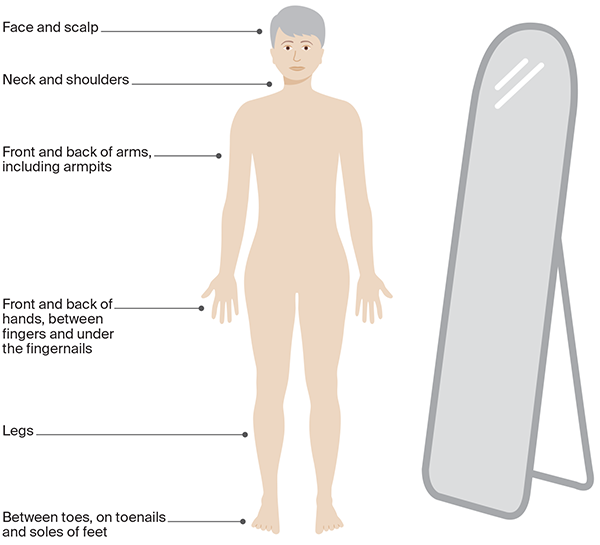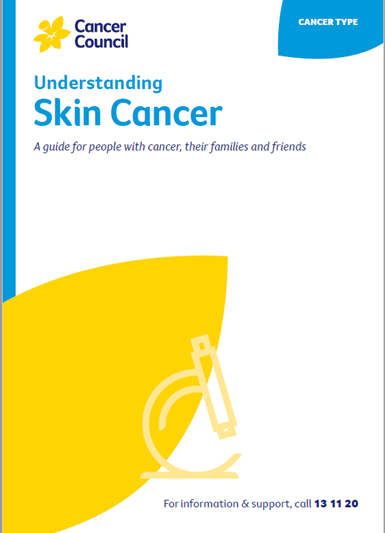- Home
- Skin cancer
- How to spot a skin cancer
How to spot a skin cancer
Below we discuss how to spot a skin cancer and how to check your skin.
How do you spot a skin cancer?
Most skin cancers are self-detected. If you know what changes to watch for, you’ll be more likely to find a skin cancer early.
Skin cancers don’t all look the same, but there are some signs to look out for, including:
- a spot that looks and feels different from other spots on your skin
- a spot that has changed size, shape, colour or texture
- a spot that is tender or sore to touch
- a sore that doesn’t heal within a few weeks
- a sore that is itchy or bleeds.
Getting to know your skin will help you notice any new or changing spots. Make a time to regularly check your skin. You could try having a calendar reminder for the first day of the month, or you may want to do a check at the change of each season.
There is no set guideline on how often to check for skin cancer, but if you have had a skin cancer or are at greater risk of developing skin cancer, your doctor can tell you how often to check your skin.
How to check your skin
In a room with good light, undress completely and use a full-length mirror to check your whole body. To check areas that are difficult to see, use a handheld mirror or ask someone to help you.

If there any changes to your skin, if you notice something new, or you are worried about a spot you see, make an appointment with your doctor straightaway. You will have a better outcome if the skin cancer is found and treated early. For more information on checking your skin, visit sunsmart.com.au/skin-cancer/checking-for-skin-cancer.
Can smartphone apps help detect skin cancer?
Some smartphone apps let you photograph your skin at regular intervals and compare the photos to check for changes. These apps may be a way to record any spot you are worried about or remind you to check your skin.
However, research shows that apps cannot reliably detect skin cancer. If you notice a spot that worries you, make an appointment with your doctor straightaway.
→ READ MORE: Skin cancer diagnosis
Podcast for people affected by cancer
Listen now
More resources
Prof Martin Oehler, Director of Gynaecological Oncology, Royal Adelaide Hospital, and Clinical Professor, University of Adelaide, SA; Dawn Bedwell, 13 11 20 Consultant, Cancer Council QLD; Gemma Busuttil, Radiation Therapist, Crown Princess Mary Cancer Centre, Westmead Hospital, NSW; Dr Antonia Jones, Gynaecological Oncologist, The Royal Women’s Hospital and Mercy Hospital for Women, VIC; Angela Keating, Senior Psychologist, Royal Hospital for Women, NSW; Anne Mellon, Clinical Nurse Consultant – Gynaecological Oncology, Hunter New England Centre for Gynaecological Cancer, NSW; Dr Inger Olesen, Medical Oncologist, Andrew Love Cancer Centre, Barwon Health, Geelong, VIC; Dr Serena Sia, Radiation Oncologist, Fiona Stanley Hospital and King Edward Memorial Hospital, WA; A/Prof Megan Smith, Co-lead, Cervical Cancer and HPV Stream, The Daffodil Centre, Cancer Council NSW and The University of Sydney, NSW; Emily Stevens, Gynaecology Oncology Nurse Coordinator, Southern Adelaide Local Health Network, Flinders Medical Centre, SA; Melissa Whalen, Consumer.
View the Cancer Council NSW editorial policy.
View all publications or call 13 11 20 for free printed copies.

